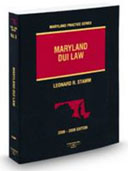Today, the Supreme Court heard argument in the case of Missouri v. McNeely. The case involved police obtaining a blood alcohol test without a warrant. The officer, who had previously had no difficulty obtaining warrants before getting blood samples in DUI cases had mistakenly believed that Missouri law had changed. Because there was nothing unusual about the case, the Missouri Supreme Court distinguished the 1966 Supreme Court case of Schmerber v. California, where due to the delay occasioned by an accident investigation and the defendant’s trip to a hospital, and the dissipation of alcohol in the blood, the Supreme Court allowed a warrantless blood draw. In this case, the Missouri Supreme Court held that the state had failed to show the special circumstances that would have allowed police to skip getting a warrant.
The State of Missouri requested review, posing the following question:
Whether a law enforcement officer may obtain a nonconsensual and warrantless blood sample from a drunk driver under the exigent circumstances exception to the Fourth Amendment warrant requirement based upon the natural dissipation of alcohol in the bloodstream
McNeely was represented in the Supreme Court by Steven Shapiro, legal director of the ACLU. McNeely was supported by a number of amicus briefs, including one filed by the National College for DUI Defense and the National Association of Criminal Defense Lawyers and co-authored by Leonard R. Stamm, Jeffrey Green, and Jeffrey Beelaert.
The oral argument last about an hour and included a very lively discussion about the Fourth Amendment warrant requirement and how it relates to drunk driving cases.
The argument included the following exchanges:
Justice Sotomayor asked the prosecutor, John N. Koester, Jr., if police can draw blood and he said you don’t have to reach that today. She said if we rule in your favor we will.
Justice Breyer asked why can’t the officer just call the judge on the way to the hospital and say he’s over the center line, trouble standing and slurred speech and the judge says ok – that doesn’t take long – I just said it in under 3 minutes.
Justice Kennedy made the point that totality of the circumstances is often the test in these kinds of search cases.
Justice Kennedy asked isn’t it relevant that many states don’t use warrantless blood tests and do just fine?
Justice Ginsburg asked, the assistant solicitor general, Nicole A. Saharsky, her the Schmerber spent so much space limiting their decision to those facts.
Justice Scalia asked Steven Shapiro if a breathalyzer required a warrant and he said yes.
Justice Scalia also asked Shapiro why we need a warrant there is always PC to which Shapiro said not always.
Justice Alito asked if it would make a difference in a rural area where the judge is unavailable (but allowing a warrantless search there is consistent with a totality approach if there is no judge available).
Justice Kennedy and Roberts asked if checklist warrants were ok and Shapiro said yes, at least a judge can make sure they checked the correct boxes.
At the end Justice Sotomayor asked about dissipation of alcohol and Shapiro was asked to distinguish flushing dope down the toilet – intentional v. nonintentional, entire case gone v. still have a case.
In the end, it appeared that the justices were uncomfortable with the prospect of allowing warrantless blood draws in all run-of-the-mill DUI cases.
As we said in our amicus brief:
Petitioner claims that the dissipation of alcohol in the body of a drunk driving suspect creates an exigency and that justifies dispensing with the warrant requirement in every case. However, anecdotal evidence shows exactly the opposite, that states are able to successfully prosecute cases using warrants to obtain blood alcohol tests in thousands of cases every year. Some states could even improve their already acceptable return times by using widely available electronic communications technology. Warrants help persuade suspects to consent to a breath test or cooperate with a non-consensual blood test, and provide some protection to officers from civil liability. Finally, under Schmerber, police may nevertheless draw blood without a warrant when reasonable efforts have failed to obtain the warrant and there are exigent circumstances particular to that situation. Thus, under the current totality of circumstances rule, police are able to obtain a blood sample that satisfies legal requirements in every case where they have probable cause to seek one.
The full transcript is available online now.
If you are facing criminal or traffic charges in Maryland state or
federal court, call Leonard R. Stamm of Goldstein
& Stamm, P.A. at 301-345-0122 for a free consultation.
Leonard R. Stamm
Goldstein & Stamm, P.A.
6301 Ivy Lane, Suite 504
Greenbelt, MD 20770
301-345-0122
(fax) 301-441-4652
www.dwiattorneymaryland.com
https://www.marylandduilawyer-blog.com
marylandduilaw@gmail.com
Author: West’s Maryland DUI Law

 Maryland DUI Lawyer Blog
Maryland DUI Lawyer Blog

